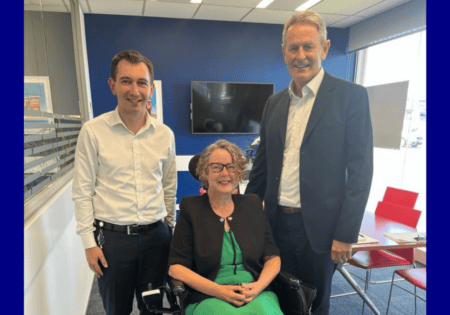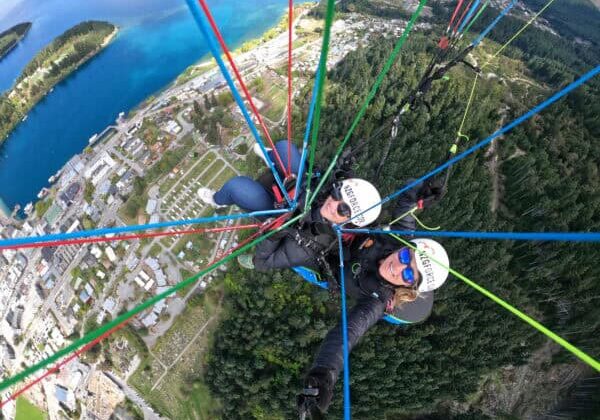2018 Research Update: Multidisciplinary Clinics
Research
25 July 2018

A summary of research from the 2018 Australasian MND Symposium.
This information will be of interest to allied health professionals, people living with MND and their carers.
This update discusses the importance of multidisciplinary teams in providing best practice care for people with MND.
- For an easier to read format, please click here for a PDF of the text below.
Multidisciplinary Clinics
This summary is based information presented by Paul Talman, clinical session 6B, and discussions with staff at Calvary Healthcare Bethlehem (Dr Susan Mathers, Dr Paul Talman and Occupational Therapist Sarah Solomon). It also summarises information from a recent paper about multidisciplinary MND Clinics published in the Journal of Multidisciplinary Healthcare.
“MDT clinics are the biggest advance in the treatment of MND. Patients in MDTs live on average a yearlonger.”
– Prof Jeremy Shefner, Barrow Neurological Institute, USA“Multidisciplinary care occurs when professionals who have different skills, knowledge, and experiences work together to achieve optimal care for patients and their families’’
– Hogden et al 2017, ‘Amyotrophic lateral sclerosis: improving care with a multidisciplinary approach’
Recent evidence suggests that along with early intervention with non-invasive ventilation and maintenance of weight and nutritional status, the provision of coordinated care through multidisciplinary clinics specialised in MND improves patient survival and quality of life.
The term “multidisciplinary” in ALS refers to care provided by specialised multidisciplinary clinics (MDCs) that activate communication with community-based services, general practitioner and palliative care services. The complex needs of pwMND frequently result in multiple services being involved in their care, and this fluctuates with disease progression.
In countries with specialised ALS clinics (USA, UK, Ireland, Italy, the Netherlands), studies have shown that care for people with MND is improved, survival increased and hospital visits reduced.
- approx 80% of ALS patients in Ireland attend one national ALS clinic
- estimated 85% of patients with ALS in the Netherlands attend the national ALS Centre
- in Australia, patients attend one of 10 clinics located in six state capitals
- a survey of ALS patients in the US revealed that 78% of respondents attended a specialised ALS MDC
- in the UK it is estimated that 70% of ALS patients access MDCs
Despite the challenges associated with travel to such clinics and the sometimes-extended length of appointments, patients appreciate being able to access specialist care where they can be involved in complex decision making requiring input from different health disciplines. Involving patients and carers in decision-making has proven essential for the delivery of high-quality care in ALS.
Decisions for life-extending or symptomatic measures (eg gastrostomy, invasive ventilation and noninvasive ventilation), as well as end-of-life care, are complex. Successful outcomes can depend upon the timing of interventions, and the consequences of avoiding decision-making (eg for nutrition/hydration or respiratory distress) can impact the patient’s health and quality of life.
The ALS MDC can offer patients and their family caregivers a supportive setting when discussing such treatment decisions.
Three critical points in ALS patients’ care journey shape their health care outcomes and their quality of life.
- the timing and delivery of the diagnosis
- the accessing of MDC care
- the timing of decisions surrounding symptom management and end-of-life care.
The European Federation of Neurological Societies (EFNS) guidelines recommend that more frequent reviews for patients at MDCs in the months following diagnosis or in the later stages of disease may be needed, with less frequent review if the disease is progressing slowly. In the US, 3-monthly visits by ALS patients to large MDCs are common.
Alongside the benefits that patients and their family encounter in multidisciplinary ALS care are advantages to health care professionals who work within the MDCs. Health professionals gain experience and expertise in ALS care, learning from patients and family caregivers when supported in a clinical environment dedicated to ALS care.
Patients’ attendance rates at specialised ALS MDCs show a significant portion of ALS patients are not able, or choose not, to access MDC care.
Stronger links between specialised ALS MDC services, general neurology, and primary care services could improve the quality of care for patients being managed in their own community and increase the expertise of practitioners outside the current MDC network.
Patients who live a long distance from an MDC may be at a disadvantage in particularly in the latter stages of the disease, particularly when fatigue and mobility restrictions increase.
The use of tele-health has the potential to offset some of the logistical difficulties associated with accessing specialised ALS clinics. Where patients are unable to physically access the MDC, tele-health can enable the MDC team to interface with patients and their family in the home environment. In addition, tele-health has the potential for local and community-based services to engage with the MDC in real time and to partner the MDC in the decision-making process.
The role of case management in ALS, in which designated professionals work collaboratively with patients and their families, guiding and supporting them through the different phases of care, has been examined. A qualitative investigation of patients’ and their caregivers’ perceptions of the same service identified that ALS patients and their families were receptive to case management and that they valued the additional emotional support available to them from a case manager.
The authors also note the integral role that voluntary support services, mostly in the form of national and regional ALS/MND Associations, play in many countries in the delivery and/or supplementation of this coordinated care.
References:
- Amyotrophic lateral sclerosis: improving care with a multidisciplinary approach J Multidiscip Healthc. 2017; 10: 205–215. Published online 2017 May 19. doi: 10.2147/JMDH.S134992
- Henderson RD, Hutchinson N, Douglas JA, Douglas C. Telehealth for motor neurone disease.Med J Aust. 2014 Jul 7;201(1):31.


